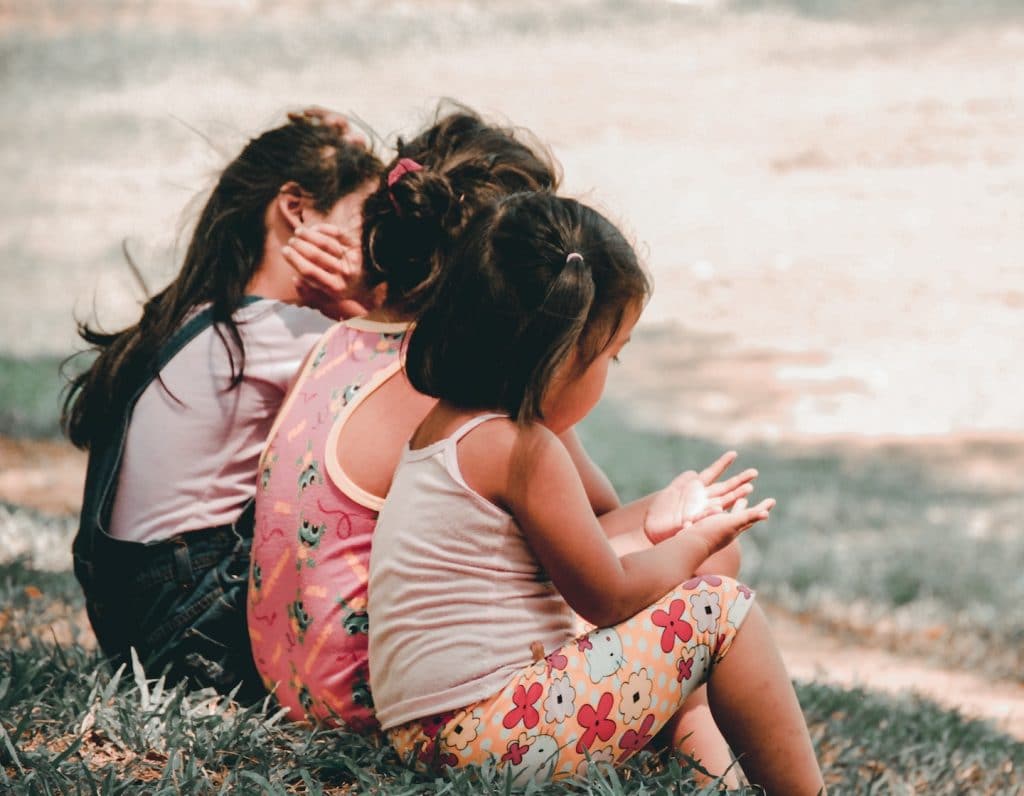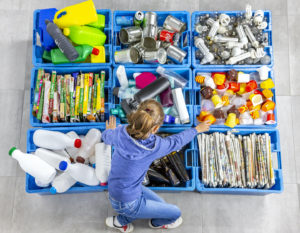




Worried your daughter is a ‘Mean Girl’? Here’s how to troubleshoot, and empower all girls through friendship and assertiveness
In this 2-part series on “Mean Girls” psychologist Pip Johnson focuses on the roots of exclusionary and bullying behaviour in girls (from ages 4 to 12), as well as the steps parents can take to help their daughters solve their own problems. Click here to read part 1, in which she examines why the social lives of girls can be such rollercoasters, and shares strategies for teaming up with our daughters to help them through the sharp turns, dips, and loops they may encounter socially. Here in Part 2, she looks at two common ways in which our girls can suffer and what to do if your daughter is displaying mean girl behaviour herself…
P.S. Plenty of this applies to boys as well!
Yo-Yo Friendships
Yo-Yo Friends pull you in, then push you away. Typically, the pushback is an unexpectedly mean act. These friendships are damaging, as just when our girls start making new friends, they get pulled back in again and the cycle starts anew! This is unfortunately quite common in young girls. It is also a situation in which it may be difficult to stay calm and not issues directives or get involved. However, lasting change – and healthy friendships – will only come if your daughter identifies the issue and fixes it herself!
Read more: 24 After-School Questions to Get Your Kids Talking
Here are some tips specific to Yo-Yo Friendships:
- Give the yo-yo friend the benefit of doubt the first time. If the cycle repeats, or is damaging, look for ways to separate the girls more formally (e.g. by asking for them to be in separate classes the following year).
- Talk to your daughter’s teacher about mixing the girls up more in class.
- Help your daughter to identify the “dual” nature of the friendship. Perhaps sit together and make a list of the good and bad aspects of the friendship.
- Talk to your daughter about what makes a good friend. Discuss how the behaviour of the yo-yo friend fits into that framework and contrast that with the behaviour of your daughter in the friendship.
- Bolster her self-esteem to help build her confidence to leave the Yo-Yo friendship.
- Finally, prevention is better than a cure. So, aim to broaden and diversify your daughter’s friendship circles. As cute as little besties are, a single best friend at this fickle stage (and age) is a risk. Encourage your daughter to have more than one close friend. And if she has a single best friend, help her to develop other friendships.


The power of the group
Girls’ social groups often cause anxiety. Given their very strong need to belong, joining and maintaining membership in a group is a critical and healthy part of young girls’ social lives. Unfortunately, their eagerness to fit in the group and not rock the boat can leave them feeling powerless or behaving in a way that doesn’t feel right.
Here are some tips for encouraging positive group behaviour:
- Help your daughter to understand the dynamics of her social group. Ask how decisions are made, and talk to her about healthy decision making. If they are in a group where the leader wields power and excludes others, ask her how it feels. Is being in the group stressful? Does she worry that she could be excluded if she does something wrong? Understanding the group your daughter is in will help her understand if being in the group is worth it. You might explain that having kind friends is better than being in the ‘in’ group (often pressure to be a part of a particular group is linked to status).
- Encourage your daughter to develop multiple individual friendships within her group. Having a few allies in the group will give her a stronger presence, and enable her to be more assertive when pushed or tested.
- Finally, remind your daughter of the dangers of gossiping and spreading rumours. Go outside and throw some confetti into the wind – and then try and pick it all up. Next, explain that spreading rumours is like throwing confetti: very easy to do, and sometimes even a little bit fun … but it’s difficult (and not much fun) picking up the pieces.
- Help your daughter develop a Plan B – pack some toys or activities in your daughter’s bag that she could play with should she find herself in a situation at lunchtime where she has been excluded and is alone (also useful for yo-yo friendships). This could include pens and a notebook for drawing, playing cards, or a skipping rope. If it is an item that may attract the interest of other children to come and play with her, even better!
What if your daughter is being mean?
There are lots of lovely girls who are mean from time to time. Often this is a result of them struggling to find the middle ground between being kind and fitting in (being passive), and standing up for themselves (being aggressive). Assertiveness is the middle ground and something that we should aim to develop within our daughters. By being assertive our daughters will be better able to deal with issues as they arise (as opposed to letting them bubble up into aggressive “mean girl” acts). Plus, assertiveness is likely to keep the power inside social groups and friendships more balanced, which will hopefully prevent mean girl acts from taking place.
Assertiveness is a difficult skill to master – many adults still struggle with this!
Look for opportunities for our daughters to practice being assertive in low-stakes scenarios. Practice will help them to express themselves assertively when the stakes are high. Low-stakes scenarios include asking for help, expressing new ideas, or taking part in a new activity. We also have a part to play. It’s important for parents to role model these skills in our everyday interactions with kids and adults. You might also do some role playing to give them a chance to act things out.
Assertiveness skills won’t stop all mean girl behaviour. Mean girls exist – and your daughter is going to have to deal with one eventually. Some young girls simply fall into powerful roles in social groups and find it hard to use their new-found maturely and responsibly. Above the age of 8, social manipulation is also something that may be taking place.


If you believe your daughter is showing some mean girl behaviour, here are some tips:
- Connect with her and ensure you stay on her team. This can be especially hard if you suspect your daughter is being mean – but you need to withhold judgement and see things from her perspective. It’s important that you do not tell her what to do.
- Encourage your daughter to reflect on the impact of her actions. Remind her of similar scenarios where she or someone she is close to (perhaps a sibling) has been treated unfairly. Ask her how she felt in that situation. How would she feel if the same thing happened to her? You might use fictional books where characters have been unfairly treated
- Reinforce the importance of kindness and being inclusive. One tool I have used is Have you Filled a Bucket Today? by Carol McCloud. Discuss how you can fill and empty other people’s buckets. Embed the concept through regular conversations about what you each do to fill people’s buckets – perhaps by asking “Did you fill someone’s bucket today?” at dinner.
- Encourage your daughter to make amends using the 3 Rs – Recognise the mistake she made or the way in which she hurt someone; take Responsibility for the behaviour; and Rectify by apologising.
We will never be able to totally prevent our girls from being hurt in social situations, or from hurting others. But nor should we aim to do so. Riding this roller-coaster is part of growing up. The twists and turns are an opportunity for our girls to learn kindness, forgiveness, and assertiveness. These are really important life-skills. Become their strongest ally, help them find their own path through these situations, and show faith in their qualities as a friend — and you’ll find your little girl has matured into an impressive young woman.
Read more:
Mean Girls Part 1: The Reasons Behind Mean Behaviour & Trouble-Shooting Strategies
Raising Sensitive Boys






 View All
View All





 View All
View All








 View All
View All







